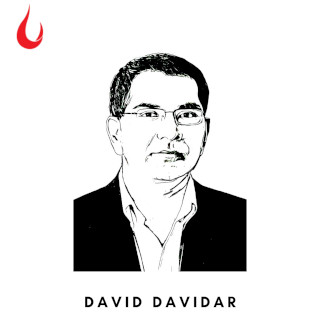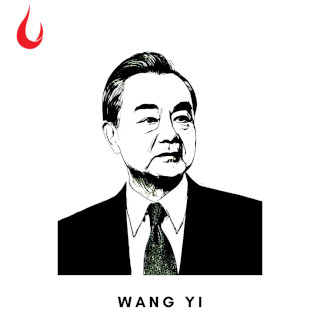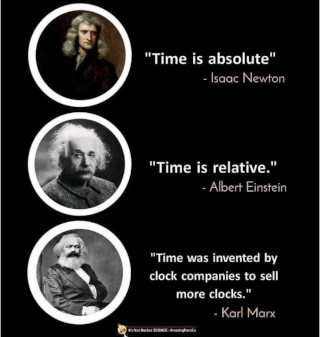[Image by manseok Kim from Pixabay]
Good morning,
In Connecting the Dots, John Chambers, former CEO and chairman of Cisco, has a chapter with an interesting title: Act Like A Teenager And Think Like A Dyslexic. The subtitle hints at the rationale: How to spot market transitions.
He explains: “Why am I so optimistic about the role digital natives will play in leading us through the next waves of disruption? They are prewired to seek out change and dare to get ahead of it. If you’re a CEO or the leader of any organization, you have four key responsibilities: (1) to set the vision and strategy of the organization; (2) to develop, recruit, retain, and replace the management team to execute that vision and strategy; (3) to create the culture; and (4) to communicate all of the above. How you fulfill those responsibilities will depend on everything from your industry to your personality, but it’s hard to succeed in any of them if you don’t start with the right mindset. You have to develop a capacity for filtering and evaluating the facts, the fears, the fiction, and the feedback that bombard you every day. When you see an opportunity, you act fast to figure out where the world is really going. Standing still is riskier than moving forward. If you wait until the trend is obvious, you’re already too late.
“The next generation of leaders are more than just tech-savvy; they are brave and curious and hungry for new ideas. They’re too impatient to stand still. I’ve talked to a lot of teenagers over my career and I’ve never met one who is satisfied with the present. They’re all about the future and it can’t come fast enough for them. They want to do things differently from the people who are currently in charge. In fact, it’s their job to disrupt. Teenagers don’t seek incremental change. They want to turn the world upside down and make it their own. They’ll shake things up while juggling a dozen other things: doing homework, listening to music, texting friends, eating over their computer (even though you’ve told them not to), posting a video on YouTube, and then finding something funny to share while they’re at it. In a teenager, such instincts can be reckless and impulsive at times. Leaders can channel that mindset into a more structured framework and it can become a powerful predictor of success.”
The bigger point that Chambers is making is for us to develop a teenager’s mindset, of spotting trends, seeing the future, and making change happen.
Tomorrow, Founding Fuel is curating a conversation between two of the best minds: Nandan Nilekani and Haresh Chawla. You can register here: http://bit.ly/FFTrendspotting.
In this issue
- How to book success
- China’s economic web
- Time to know the truth
Have a great day!
How to book success
In his essay in Scroll, David Davidar, founder of Aleph Book Company, shares the journey of how his new publishing firm, founded in only 2011, made an impact in the world of books.

“We are an ancient civilisation, so there is a lot to be written about, and we have hardly begun”
He writes: “I’d been a publisher for almost thirty years when I co-founded Aleph, and hadn’t published more than a score or so of such titles, how on earth were they suddenly going to materialise out of nothing to be the foundation of Aleph’s future? We had a simple solution to that conundrum, but one which would prove almost impossible to engineer at the outset—we would, we thought, bypass some of the more established ways of acquiring books (we would try not to participate in agents’ auctions for all but the very biggest books, for example), and commission virtually all the books we wanted to publish.
“We would look for gaps in the market, and look in places we hoped no one else was looking, to find the phenomenal writers and staggering books that would fuel our ambition. And, once we had commissioned them, we would do everything we could to make the books monumental. I felt that readers would buy books that were ambitious, superbly written and imagined, and unlike anything that had hitherto been seen on the subject. And it didn’t matter that the world seemed to be dumbing down, there would be still enough people who valued quality.”
Davidar says the opportunity is huge, and we have barely scratched the surface. “We are an ancient civilisation, so there is a lot to be written about, and we have hardly begun. We have enough unworked material and unimagined books to keep thousands of writers and dozens of publishers busy for a hundred years. And so, we go on.”
Dig deeper
China’s economic web
In their newsletter, Claire Berlinski who is based in Paris and Vivek Y. Kelkar who is based in Mumbai (and a valued member of the Founding Fuel community), explain the significance of the investment deal China made with the EU, the most ambitious that China ever concluded after seven years of negotiation. They draw our attention to an important speech given by China’s state councilor and foreign minister Wang Yi at the Symposium on the International Situation and China’s Foreign Relations in 2020 in December.

They write: “Yi explained, at length and methodically, China’s plan to weave an economic web across the most significant regions of the world, with China at the center. To that end, he said, 2020 had been ‘a watershed in human history’ and ‘groundbreaking’ for China’s foreign relations.
“2021, he noted, marked the centennial of the founding of the Chinese Communist Party. The year is pregnant with significance to the Party leadership. Yi said that in 2021, China would ‘start a new journey.’ Domestically, it would build a modern socialist country ‘in all respects.’ Abroad, it would ‘resolutely forge ahead’ in shaping ‘major-country diplomacy with Chinese characteristics.’ This, said Yi, would herald the birth of a new era, ‘characterized by a new type of international relations.’
“After expatiating at length upon China’s plans to Sinoform the world—the plans are very detailed and already quite well-developed—he concluded: ‘The wheels of history will always move forward, and nothing can stop the overwhelming trend of the times.’ ”
Dig deeper
Time to know the truth

(Via WhatsApp)
Tell us what you think and find noteworthy. Head over to our our Slack channel.
And if you missed previous editions of this newsletter, they’re all archived here.
Bookmark Founding Fuel’s special section on Thriving in Volatile Times. All our stories on how individuals and businesses are responding to the pandemic until now are posted there.
Warm regards,
Team Founding Fuel
(Note: Founding Fuel may earn commissions for purchases made through the Amazon affiliate links in this article.)


